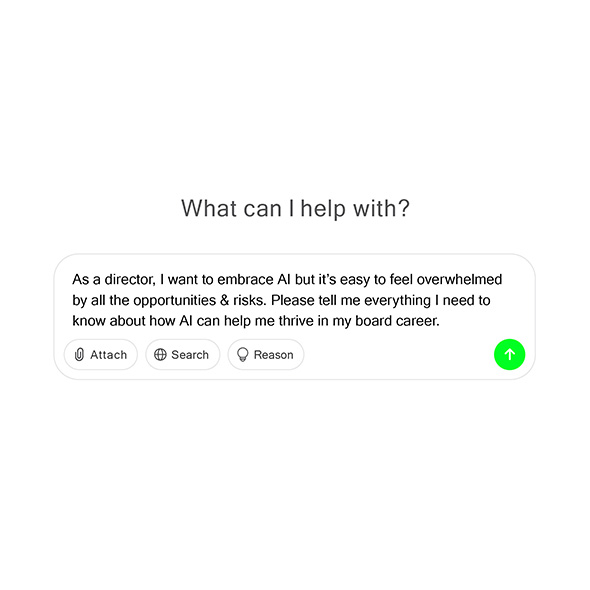Personal family experience prompted Ange Liston-McCaughley to launch Type 1 Foundation, a charity that zeroes in on an often overlooked aspect of chronic illness — the impact of diagnosis.
Ange Liston-McCaughley was on a family holiday to the Gold Coast in 2013 when her nine-year-old daughter, Lila, became ill. It wasn’t the first time she’d displayed the symptoms — mainly weakness and fatigue — but doctors couldn’t reach a diagnosis. Perhaps it was a virus? Maybe she was an anxious child? One doctor suggested she just needed to get more rest. But when Lila was too fatigued to swim in the pool during that holiday, Liston-McCaughley took her to see another doctor, who diagnosed diabetic ketoacidosis, which occurs when blood glucose levels remain dangerously high. Lila had Type 1 diabetes and was one hour away from falling into a coma.
“I didn’t know anything about Type 1,” says Liston-McCaughley. “I didn’t have any friends or family members with it, so to say it was traumatic is probably an understatement. Plus, I had a four- week-old baby at the time. It was totally life- changing for our family.”
A number of non-profits provided the medical insights to help Liston-McCaughley and her husband, Leif, navigate the complexities of Lila’s condition, but one element of support was missing. In 2015, Liston-McCaughley filled this gap by launching Type 1 Foundation, a Victorian-based charity that zeroes in on a vital, but often overlooked, aspect of chronic illness — the emotional and communal impact of diagnosis.
Building awareness and support
Approximately 140,000 Australians are living with Type 1 diabetes, an autoimmune condition that occurs when the pancreas does not produce insulin. Its cause is unknown, it cannot be prevented and there is no cure.
Following Lila’s diagnosis, Liston-McCaughley recalls feelings of loneliness and isolation. To improve her mental health, she took up marathon running, which also helped her to raise money and awareness of Type 1 diabetes. She set a goal to run 10 marathons in a year, built a strong social media following and raised more than $25,000 to start Type 1 Foundation.
“I didn’t have any experience in running an organisation, but I just needed to do something,” says Liston-McCaughley, who is now also the CEO of the foundation.
In a crowded field of healthcare non-profits, Type 1 Foundation stands out for its emphasis on immediate, lived experience, as well as its governance structure, mission and leadership. Each member of the charity’s 10-person board has direct experience with Type 1 diabetes.
“I put it out there that we were starting the foundation and we had expressions of interest from people who wanted to join the board,” says Liston- McCaughley, who has a background in fashion design and events.
“We have trialled people who have no direct connection to Type 1, but good experience in the medical field. We find that it doesn’t tend to work that well, only because so much about Type 1 diabetes is like speaking another language. It’s the jargon, the lifestyle, everything. It’s really hard to understand, so we find it much easier, on a board level, for everybody to have some degree of understanding of what it is like to either care for somebody or to live with Type 1 diabetes.”
This includes the foundation chair, Kieran Liston, Lila’s grandfather and the founder and director of Liston Newton Advisory. He explains that the organisation’s governance policies, programs and community outreach initiatives are all informed by its mission to support families, build awareness of Type 1 diabetes and create connections in the community.
“Support, awareness and connection are highlighted at every board meeting,” he says. “Those three things are why Type 1 Foundation exists. In every board meeting, we discuss how we are delivering support, how we are creating connections and how we are building awareness. We segment and structure much of our board meetings around those three goals.”
The board meets every six to eight weeks and Liston-McCaughley sends a fortnightly CEO report. “We have conversations about everything that goes on,” she says. “Obviously, at board level is where everything gets approved. We’ve definitely got a very engaged group on the board.”
Family matters
Type 1 Foundation has about 300 volunteers, 50 ambassadors and five part-time casual employees. It has raised $1.1m and more than 90 per cent of the funds go directly to supporting some 1000 families across Australia. Its charity programs include Type 1 mums’ dinners, care packages for newly diagnosed families, and family events.
“Our events sell out within hours, and we get up to 600 people attending,” says Liston- McCaughley. “One of our Melbourne Christmas parties has a waiting list of about 300 at the moment. I’m from a large family and the networking aspect of what I do comes quite naturally. You need to understand your people and get on their level. We’ll always be a grassroots organisation.”
Those events also include the Type 1 Youth Camp, which helps the children to form connections. “When these children meet other kids with Type 1, they realise that they’re not the only one with the disease,” says Liston-McCaughley. “After we ran our first event, we became aware that this kind of connection is such an important part of these kids’ lives.”
A structure for growth
To support Type 1 Foundation’s growth, Liston- McCaughley has sought to bring new skills to the board. Joshua Ginpil GAICD, a non-executive director of Retina Australia and senior manager of governance at Commonwealth Superannuation Corporation, joined the board this year to help implement new governance frameworks.
“There are risks that come along with rapid growth, just because you can quite easily lose your way if you don’t set up the appropriate systems and controls to create oversight,” says Ginpil, whose own daughter, Violet, was diagnosed with Type 1 diabetes last year at 11 months old.
“Coming in with my background, it is timely. I can contribute to the development of governance frameworks, implement higher-level policy directions and work with the rest of the board and staff to help steer the foundation in a direction where we have that support-services structure. This will allow us to continue the growth in the future, as well as maintaining our current services.”
Prior to his appointment to the board, Ginpil joined Type 1 Foundation’s inaugural Kokoda Trail charity walk and is now part of the team leading the event in 2024.
“Now we’ve moved into providing support to dads,” says Liston-McCaughley. “Everything I do with the foundation is based on what I didn’t have. I don’t really look around to see what others are doing that much. My biggest goal is that people don’t leave the hospital without knowing who we are, so they can connect with us straight away.”
This article first appeared under the headline 'Growing A Foundation’ in the June 2024 issue of Company Director magazine.
Latest news
Already a member?
Login to view this content



